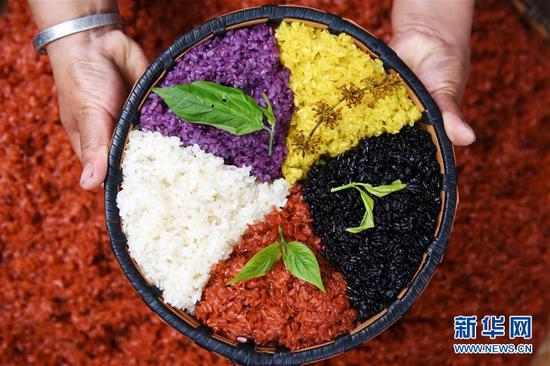CHICAGO, April 19 (Xinhua) -- Researchers at the University of Chicago Booth School of Business find that reframing how students view food-marketing campaigns can spur adolescents, particularly boys, to make healthier daily dietary choices for an extended period of time. And the method works, in part, by tapping into teens' natural desire to rebel against authority.
In a study which used a new sample of eighth-graders, teens first read the marketing exposure material, and then did an activity called "Make It True," meant to reinforce the negative portrayal of food marketing. The students received images of food advertisements on iPads with instructions to write or draw on the ads, graffiti style, to transform the ads from false to true.
The study found that the effects of the marketing exposure intervention endured for the remainder of the school year, a full three-month period. The effects were particularly impressive among boys, who reduced their daily purchases of unhealthy drinks and snacks in the school cafeteria by 31 percent in that time period, compared with the control group.
"One of the most exciting things is that we got kids to have a more negative immediate gut reaction to junk food and junk food marketing, and a more positive, immediate gut reaction to healthy foods," said Chicago Booth's Christopher J. Bryan.
"Food marketing is deliberately designed to create positive emotional associations with junk food, to connect it with feelings of happiness and fun," said Bryan. "What we've done is turn that around on the food marketers by exposing this manipulation to teenagers, triggering their natural strong aversion to being controlled by adults. If we could make more kids aware of that, it might make a real difference."
However, the study was less conclusive about the intervention's effect on teen girls' cafeteria purchases. Although, like boys, girls experienced a more negative immediate gut response to junk food after the exposure intervention, their daily cafeteria purchases were similar whether they read the exposure or the traditional health education material.
The study was published April 15 in Nature Human Behaviour.


















































